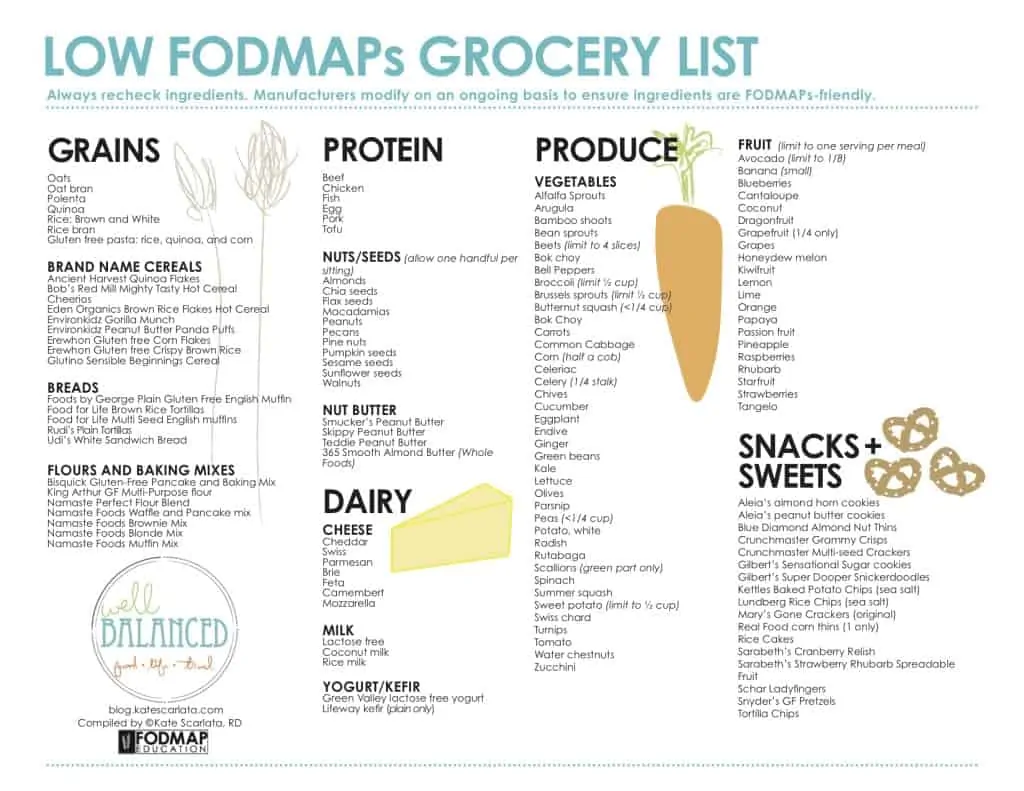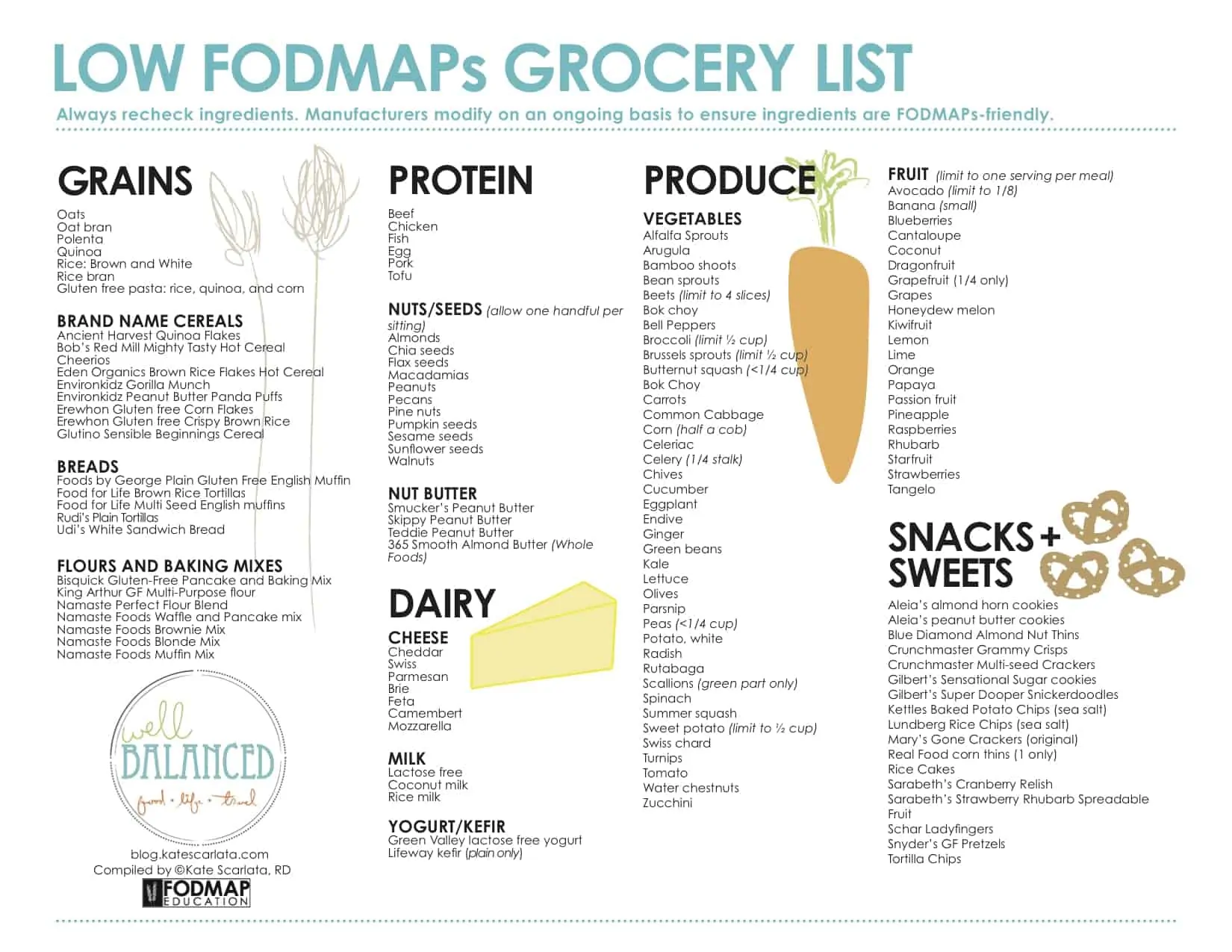Hey friends!
I am so happy to share today’s post with you, which is actually a guest post by the wonderful Kate Scarlata. Kate’s blog has been a wonderful resource ever since I was introduced to this “low FODMAP” way of eating. My GI doctor gave me a list of foods that were ok to eat and at the bottom of the list, Kate’s blog was listed…being an avid blog reader and future RD I just had to check it out and I am very glad I did.
When I told you last week that I was having “tummy troubles” I was surprised by the number of people who were experiencing something similar and many of you had questions about this whole low FODMAP way of eating and healing. Because of this, I thought Kate could share a little more detail with all of you about what IBS and low FODMAP are. After all…she is the expert!
Take it away, Kate!
______________________________________________
Hi there! My name is Kate Scarlata and I am a Boston-based dietitian as well as a low FODMAP diet and IBS expert.
I am a runner, mom of 3, and dog lover…I have a crazy chocolate lab, Lucy who I adore! I am always on the look out for a new adventure. My husband, Russ and I are high school sweethearts and we both have the travel bug! All who wander are not lost, right?
Tara asked me if I would do a post about FODMAPs and I am happy to do so. Are you ready to learn little about FODMAPs and IBS?
First of all, IBS (irritable bowel syndrome) is an unrelenting intestinal disorder that presents with altered motility and hypersensitivity of the intestine. IBS impacts up to 1 in 5 Americans causing debilitating pain, cramps and GI distress. FODMAPs are small carbohydrates that can trigger symptoms in those that suffer with irritable bowel syndrome (IBS). Research has shown that a diet low in FODMAPs can manage symptoms in 75% of those who suffer with IBS!
FODMAPs are a group of poorly absorbed sugars and fibers. They tend to pull water into the intestine and are fast food for naturally occurring gut bacteria. It’s important to note that although FODMAPs are commonly malabsorbed in many individuals, debilitating symptoms from eating them typically only occur in those with IBS. This is because the IBS intestine can trap the gas and fluid that are created after eating poorly digested FODMAPs and because the IBS intestine is particularly sensitive to the stretching that occurs from the gas and fluid that is pulled into the intestines.
Time to put on your thinking cap…FODMAPs is an acronym that stands for:
F-fermentable (causes gas)
O-oligosaccharides (a fancy name for a type of fiber)
D-disaccharide ( lactose, the sugar in milk)
M-monosaccharide (fructose, fruit sugar)
A-and
P-polyols (sugar alcohols such as mannitol and sorbitol)
FODMAPs are found in everyday foods such as: apples, pears, mango, watermelon, garlic, onion, sugar-free gum, wheat, plums and more. The low FODMAP diet is a learning diet. Individuals remove high FODMAP foods for 2-6 weeks followed by a reintroduction phase of the diet. During reintroduction, FODMAPs are individually added back to help determine which FODMAPs were the cause of belly distress.
To learn more about FODMAPs, visit www.katescarlata.com. Here you will find numerous resources about the diet including this grocery list to help you get started.
Before changing your diet check with your doctor and be sure to be tested for celiac disease. Celiac disease is an autoimmune condition in which gluten causes inflammation and damage to the small intestine. In order for celiac testing to be accurate, it is essential that gluten is being consumed at the time of testing. Gluten is the protein found in wheat, barley and rye. The low FODMAP diet modifies wheat, barley and rye because in addition to gluten, as they also contain FODMAP carbohydrates.
I hope this inspires those of you with tummy trouble to search more for answers to help manage your symptoms.
Related Posts
Based on this post, here are a few similar ones you should check out.






Leave a comment
Thanks so much for sharing 🙂 I love love love learning about nutrition and our bodies, esp as I’ve been having some ‘tummy’ troubles! I am so happy to have her as a new resource.
You are so welcome, Sarah! Kate is an amazing resource. I think you will really like her stuff!
I have been reading up a lot about FODMAPs. I have IBS and I think that eating a low FODMAP diet will help. I am just nervous about being able to actually eliminate all the High FODMAP foods and sustaining that.
Hi Mattie! low FODMAP helps a lot of people with IBS but not everyone, so make sure you speak with a health professional (doctor, RD, etc) before making this change to your diet. It’s also important to remember that removing all of these items from your diet is not a permanent thing. It’s very important to complete the reintroduction phase so that you understand which foods are actually triggering your body. Good luck!
Very informative post! I’ll be sure to share with all my RD-to-be friends!
Thanks, Melissa!! 🙂 I thought you would find it interesting!